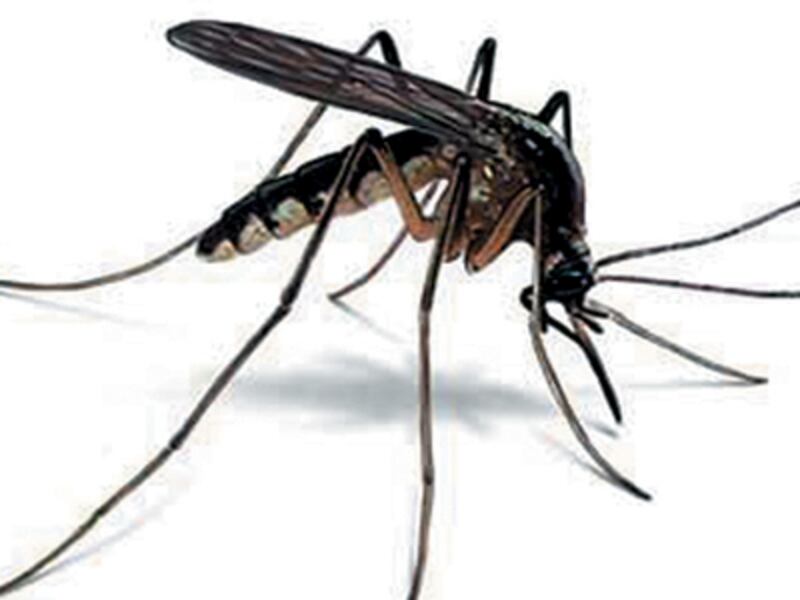A batch of mosquitoes from Lake in the Hills has tested positive for West Nile virus, marking McHenry County’s first positive test for mosquitoes in 2025.
No human cases have been reported this year, the McHenry County Department of Health said in a news release Wednesday. The mosquito pool that tested positive was collected Monday.
“Culex mosquitoes, which are the primary carriers of WNV, typically breed in stagnant water with high organic content,” according to the release.
Those places include rimless tires, abandoned swimming pools, buckets, bird baths and clogged gutters, according to the release.
People should empty standing water from containers around the home and make sure doors and windows have tight-fitting screens.
Illness from West Nile virus can occur two to 14 days after being bitten by an infected mosquito, but most people exposed to the virus don’t have symptoms, according to the health department. About 20% of infected people have symptoms such as a mild fever, as well as headaches, body aches, joint pains, vomiting or a rash, according to the release. Rest, fluids and over-the-counter pain and fever medications can help relieve mild symptoms.
More severe symptoms can include a high fever, neck stiffness, stupor, disorientation, coma, tremors, convulsions, muscle weakness, vision loss, numbness and paralysis; those with severe symptoms should seek medical attention.
People who are 50 and older; have received an organ transplant; or have health conditions such as diabetes, kidney disease, hypertension and cancer have a greater risk of developing severe symptoms, according to the release.
No vaccine or treatment currently exists for West Nile virus, according to the release.
West Nile virus risk runs through the first hard frost, and people should use Environmental Protection Agency-registered insect repellent and wear protective clothing such as light-colored long-sleeved shirts, socks and pants when outdoors.
According to the release, people should use EPA-registered insect repellents with one of the following active ingredients and apply them according to label directions:
- DEET
- picaridin (KBR 3023)
- IR3535 (a biopesticide)
- oil of lemon eucalyptus (OLE)
- para-menthane-diol (PMD)
- 2-undecanone
A full list of EPA-registered repellents is available on the EPA website. People should talk with a doctor before using repellent on infants.
For more information, visit mcdh.info or call the health department’s Environmental Health division at 815-334-4585.
